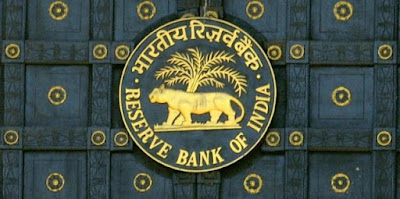Mumbai The Reserve Bank of
India (RBI) has proposed to rationalise the merchant discount rate (MDR), or
the fee a merchant has to pay a bank to access its payment infrastructure.

While the central bank did not provide any solution, it has asked public opinion in a concept paper on card acceptance infrastructure.
In the concept paper, RBI noted that MDR "often acts as a disincentive," as the cap prescribed by the regulators were treated as a floor and the benefit of lower MDR "not really accruing to smaller merchants."
Larger merchants, with economies of scale, can absorb MDR relatively easily.
In September 2012, RBI capped MDR for debit card transaction at 0.75 per cent for transaction values up to Rs 2,000 and at 1 per cent for transaction values above Rs 2,000.
The concept paper also raised questions whether MDR for credit cards should also be rationalised as the cap prescribed was only for debit cards but can be extended to credit cards as well. However, if MDR was lowered, the merchant acquisition would be unattractive for banks, thereby defeating the purpose of promoting card payment.
The concept paper proposed a few options that can be explored to make MDR viable and at the same time cheap.
The proposals included ad-valorem MDR across all merchant categories and locations, differentiated MDR across various tiers of cities and merchant sizes, and also fixing the MDR at a flat fee rate beyond certain value.
Banks are also going slow on acquiring merchants, the paper noted.
Between October 2013 and October 2015, ATMs increased by around 43 per cent while POS machines increased by around 28 per cent. As of end-December 2015, the number of ATMs has increased to 193,580 while POS machines had increased to 1,245,447 in the country.
"The issuance gap in POS terminals is glaringly high. For more than 25 million retail outlets currently, we have about 1.2 million POS terminals in India. Going forward, the POS gap will only increase leading to major acceptance problems," said Kumar Karpe, CEO of TechProcess Payment Services Ltd.
"India needs to leapfrog the gap by leveraging the existing infrastructure of more than 200 million smart phones and work towards a virtual mPOS solution that converts a merchant's smartphone into a virtual point-of-sale device."
Sun Capital

While the central bank did not provide any solution, it has asked public opinion in a concept paper on card acceptance infrastructure.
In the concept paper, RBI noted that MDR "often acts as a disincentive," as the cap prescribed by the regulators were treated as a floor and the benefit of lower MDR "not really accruing to smaller merchants."
Larger merchants, with economies of scale, can absorb MDR relatively easily.
In September 2012, RBI capped MDR for debit card transaction at 0.75 per cent for transaction values up to Rs 2,000 and at 1 per cent for transaction values above Rs 2,000.
The concept paper also raised questions whether MDR for credit cards should also be rationalised as the cap prescribed was only for debit cards but can be extended to credit cards as well. However, if MDR was lowered, the merchant acquisition would be unattractive for banks, thereby defeating the purpose of promoting card payment.
The concept paper proposed a few options that can be explored to make MDR viable and at the same time cheap.
The proposals included ad-valorem MDR across all merchant categories and locations, differentiated MDR across various tiers of cities and merchant sizes, and also fixing the MDR at a flat fee rate beyond certain value.
Banks are also going slow on acquiring merchants, the paper noted.
Between October 2013 and October 2015, ATMs increased by around 43 per cent while POS machines increased by around 28 per cent. As of end-December 2015, the number of ATMs has increased to 193,580 while POS machines had increased to 1,245,447 in the country.
"The issuance gap in POS terminals is glaringly high. For more than 25 million retail outlets currently, we have about 1.2 million POS terminals in India. Going forward, the POS gap will only increase leading to major acceptance problems," said Kumar Karpe, CEO of TechProcess Payment Services Ltd.
"India needs to leapfrog the gap by leveraging the existing infrastructure of more than 200 million smart phones and work towards a virtual mPOS solution that converts a merchant's smartphone into a virtual point-of-sale device."
Sun Capital





